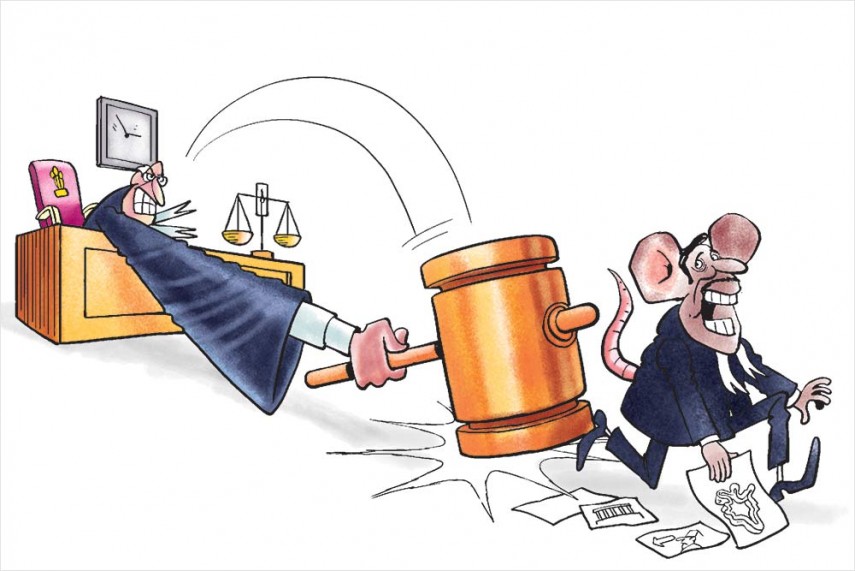Latest News
THE PRACTICE OF FILING FRIVOLOUS PILs AND ITS LEGAL CONSEQUENCES

PIL stands for Public Interest Litigation and as the term is self-explanatory, it refers to litigations wherein the interest or welfare of the public at large is concerned. This concept originated in the USA, but in India this concept originated with the decision by Justice V.R. Krishnaiyer in the case of Mumbai Kanga Sabha vs. M/S Abdulbhai Faizullabhai (AIR 1976, SC) Prior to the coming of this concept only the aggrieved or the person concerned could file a petition or the person having Locus Standi.
The case of Hussainara Khatoon and Ors. Vs. Home Secretary, State of Bihar (AIR 1979, SC) presided over by Justice P.N. Bhagwati was an important case that laid down the foundations of PIL based access to justice. After the judgment in S.P. Gupta Vs. President of India and Ors. (AIR 1982, SC) a new era was ushered and courts were flooded with PILs.
PILs play an important role in the implementation of justice and keep a check on those in power. PILs are easy to file and certain technicalities can be done away with for purpose of greater good. The scope of litigation has been widened and multifarious issues pertaining to the rights of many citizens have come in the ambit of justice. The Courts can also take Suo Moto cognizance, wherein the Supreme Court or the High Court can file the petition on its own accord on behalf of the aggrieved party. The basic underlying motive behind the PIL is to promote and in a way secure social welfare.
Unfortunately, the cases of frivolous PILs has increased in our country and many people file PILs for personal reasons, for the purpose of publicity, for fulfilling petty political agendas which is dishonorable and is harmful to the society and act as an obstacle in the process of providing speedy justice to all. Some PILs are of such nature that if allowed to continue they would cause an immense disturbance in the society which definitely was not the spirit behind PILs.
Taking, for instance, the PIL filed by former RSS member and social worker in Uttarakhand, Sangat Singh Chauhan, he prayed to move out all the Muslims to Pakistan, dismissing the petition Justice R.F. Nariman and Justice Vineet Saran asked, “do you really want to pursue this? “, it was a petty petition and said would take action against those who filed it and raised need to deter such petitions that blatantly mock the Constitutional principles.
Some other examples of PILs filed for mere self-interest were: -
1. PIL was filed to construct the great wall of India along the entire border by Vaishya Samaj Association, it was dismissed.
2. PIL was filed seeking direction to Tihar Jail authorities to give the option of organ donation of four convicts of the Nirbhaya case. Dismissing the petition Justices R. Bhanumathi and A.S. Bopanna said that no one can force another person to donate his/her organs even if he/she is a convict.
3. The bench comprising of Justices T.S. Thakur and U.U. Lalit told the petitioner Niranjan Bhatwal, a Maharashtra based social activist who prayed that India should be renamed as Bharat that, “petitions arising out of emotions and not fundamental rights are being filed in this Court. You think we have no other work. India will be India and Bharat will be Bharat”
These are just a few examples of what the courts have to deal with, thousands of such PILs are filed each year. Judiciary needs to play a proactive role in dealing with those who file PILs for publicity. Judiciary is already overburdened and such frivolous petitions eat up the precious time of courts.
Efforts have been made to initiate steps to curb the frivolous PILs by the Ministry of Law and Justice but no effective measures could be put in place. Supreme Court in a case related to the appointment of a law officer in Uttarakhand Government, comprising of Justice Dalveer Bhandari and Justice M.R. Sharma laid down guidelines to prevent frivolous PILs such as,
only bonafide PILs should be encouraged while those brought for extraneous purposes must be discouraged. Facts mentioned in PIL must be ascertained of their correctness. Check whether the substantial public interest is involved or not. Ensure that no PIL seeks personal gain, private motive, or oblique motive, it must only seek redressal of genuine public harm or injury. An exemplary fine must be imposed on frivolous PILs.
The litigants who file frivolous petitions should be aware of the consequences that might follow. This practice chokes the judiciary and thus system of penalization need to be put in place. A petition cannot be rejected in its initial stage and even SC is of the opinion that everyone should be heard but that in turn takes up a lot of the valuable time of the judges. In a country like India, where lakhs of cases are pending and strict measures should be taken to curb this menace and purpose for which PIL was made functional by the efforts of Justices V.R. Krishnaiyer and P.N. Bhagwati should be kept in mind before mindless petitions are filed for purposes that do not promote the greater good.



































































































